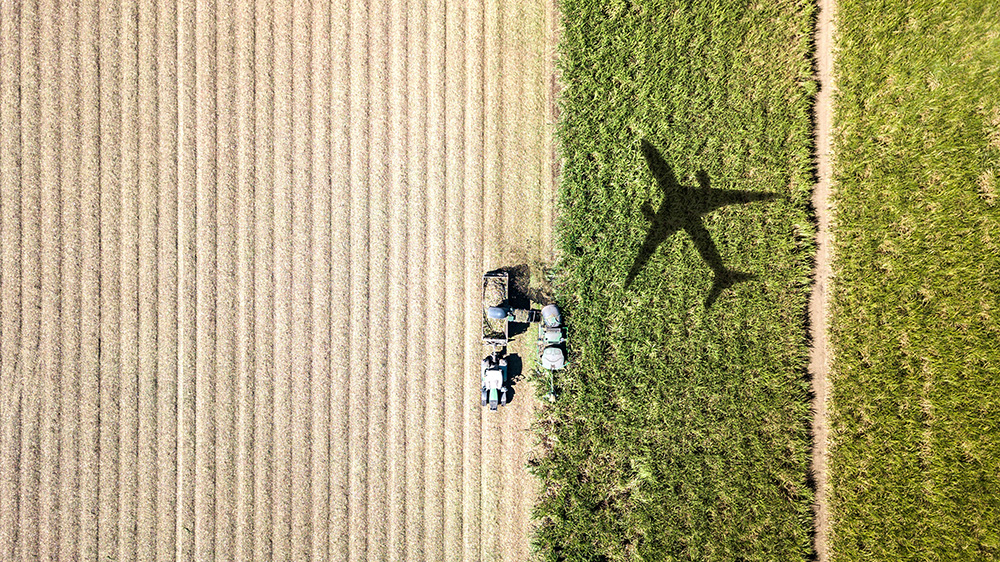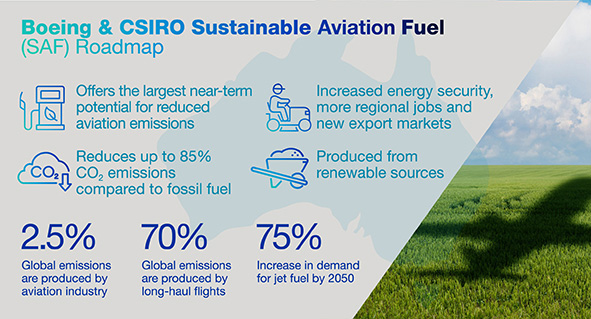CANBERRA, Australia, August 10, 2023 - Australia has a moment-in-time opportunity to develop a sovereign sustainable aviation fuel (SAF) industry, with domestic demand for jet fuel expected to increase by 75 per cent by 2050, according to a new roadmap released today by Australia's national science agency, CSIRO and Boeing Australia.
Unlike conventional jet fuel, SAF is produced from renewable sources – like agricultural waste, animal fats and vegetable oils – and significantly reduces carbon emissions over the fuel’s life-cycle making it a more sustainable alternative for powering aircraft.
The Sustainable Aviation Fuel Roadmap builds consensus on developing an Australian sustainable aviation fuel (SAF) industry, identifying opportunities to produce and scale production using Australian feedstocks.
CSIRO Senior Manager and lead Roadmap author, Max Temminghoff, said Australia was in a prime position to develop a domestic industry.
“By actively working to liberate feedstocks, the Roadmap estimates that Australia is currently sitting on enough resources to produce almost 5 billion litres of SAF by 2025. This could supply nearly 60% of jet fuel demand projected for that year,” Mr Temminghoff said.
“That’s enough fuel to power 640,000 Melbourne to Sydney return flights on a Boeing 737.
“Through a combination of feedstocks and mature technologies, a large and growing portion of Australia’s jet fuel demand can be met with local materials such as agricultural waste and residues.

